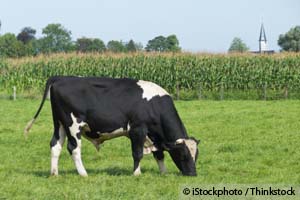 Imagine you are a nurse working in an emergency room, and a worker on a gas fracking well comes in covered in chemicals used in the drilling process. You call the gas company to find out what chemicals are being used to help in your assessment of possible health risks to your patient, and even yourself, but find out they don't have to disclose this information.
Imagine you are a nurse working in an emergency room, and a worker on a gas fracking well comes in covered in chemicals used in the drilling process. You call the gas company to find out what chemicals are being used to help in your assessment of possible health risks to your patient, and even yourself, but find out they don't have to disclose this information.
Or, imagine you are a public health nurse in a community with many natural gas fracking wells, and you notice complaints of well-water contamination. How can you assess the extent of the issue without baseline data on water quality or knowledge of the chemicals used in the fracking process?


 Environmental Glance
Environmental Glance If the pictures of those towering wildfires in Colorado haven't convinced you, or the size of your AC bill this summer, here are some hard numbers about climate change: June broke or tied 3,215 high-temperature records across the United States.
If the pictures of those towering wildfires in Colorado haven't convinced you, or the size of your AC bill this summer, here are some hard numbers about climate change: June broke or tied 3,215 high-temperature records across the United States. "Atrazine is the most common chemical contaminant of ground and surface water in the United States. It is a potent endocrine disruptor with ill effects in wildlife, laboratory animals and humans. Atrazine chemically castrates and feminizes wildlife and reduces immune function in both wildlife and laboratory rodents. Atrazine induces breast and prostate cancer, retards mammary development, and induces abortion in laboratory rodents. Studies in human populations and cell and tissue studies suggest that Atrazine poses similar threats to humans. The peer-reviewed scientific studies to support these statements are summarized and can be viewed as you navigate this website."
"Atrazine is the most common chemical contaminant of ground and surface water in the United States. It is a potent endocrine disruptor with ill effects in wildlife, laboratory animals and humans. Atrazine chemically castrates and feminizes wildlife and reduces immune function in both wildlife and laboratory rodents. Atrazine induces breast and prostate cancer, retards mammary development, and induces abortion in laboratory rodents. Studies in human populations and cell and tissue studies suggest that Atrazine poses similar threats to humans. The peer-reviewed scientific studies to support these statements are summarized and can be viewed as you navigate this website." Anyone in a gas-drilling state has seen or heard the ads talking about how fracking creates jobs and those jobs are keeping “real” Americans’ communities alive. These ads often have a purported member of the community (extra points if it’s a grandmother or a hardworking dad) talking about how grateful they are to the fracking companies for saving their town.
Anyone in a gas-drilling state has seen or heard the ads talking about how fracking creates jobs and those jobs are keeping “real” Americans’ communities alive. These ads often have a purported member of the community (extra points if it’s a grandmother or a hardworking dad) talking about how grateful they are to the fracking companies for saving their town. A compilation of independent scientific studies and reports related to the health impacts of hydrofracking was presented to New York Governor Andrew Cuomo today by a representative of a delegation of medical doctors and scientists.
A compilation of independent scientific studies and reports related to the health impacts of hydrofracking was presented to New York Governor Andrew Cuomo today by a representative of a delegation of medical doctors and scientists. Marine biologists and veterinarians say the bodies of more than 500 penguins have washed up on beaches in southern Brazil over the past week.
Marine biologists and veterinarians say the bodies of more than 500 penguins have washed up on beaches in southern Brazil over the past week. Nationwide Mutual Insurance Co. has become the first major insurance company to say it won't cover damage related to a gas drilling process that blasts chemical-laden water deep into the ground.
Nationwide Mutual Insurance Co. has become the first major insurance company to say it won't cover damage related to a gas drilling process that blasts chemical-laden water deep into the ground.






























